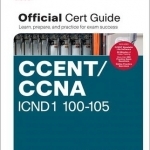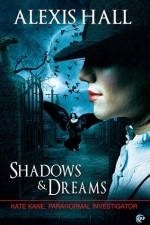
Azan Time Pro
Productivity and Utilities
App
*****Special Discount for limited time from 4.99$ to 1.99$ Get it now before the price growing...

Book Writer One
Productivity and Lifestyle
App
Take Note, Organize Thoughts, Make a Book. Share with the World. Make your own book with Book...

Music Finder for Apple Music
Music and Utilities
App
※※ Notice! ※ ※ Good news! Until February 1, - February 20 We offer a special price of 66%...

WIW - Sugar Daddy Dating App
Dating, Lifestyle and Social Networking
App
WIW - What I Want The Best app for wealthy and successful sugar daddy meet beautiful and...

BaM Video Delay for Coaching and Personal Training
Sports and Health & Fitness
App
Featured in the TOP 10 SPORTS apps in USA First real video delay - continuously showing what just...
Chris Sawin (602 KP) rated The Box (2009) in Movies
Jun 22, 2019
Richard Kelly is capable of making pretty fantastic films. Donnie Darko is still his crowning achievement. People seem to either love the film or think it's highly overrated, but with repeat viewings over the years it's become a favorite and has a cult like status. Southland Tales showed promise, but just felt like the second half of an already established franchise. That turned out to be true when the three graphic novels were published and were recommended to be read before seeing the film. I admire the fact that they took a different approach to the filmwatching experience, but since I didn't hear about the reading material until after I saw the film it seemed like a lost cause. Possibly too much to be bothered with. So Kelly offers his take on a Twilight Zone episode with The Box and the result leaves the viewer with mixed reactions.
The film seems to drag a bit in the first half hour as it introduces us to the Lewis family. The Box is dropped off on their doorstep, but then we're offered a glimpse into the daily lives of Norma and Arthur Lewis; mostly what their careers and daily struggles are like. Once Mr. Steward shows up and explains what The Box does is when the film begins to gain momentum. From that point until around the time Arthur gets knee deep into his investigation is when The Box is at its peak. There's at least one twist in there that's actually pretty satisfying, but it's unfortunate that the film can't keep that up for its entire duration. From then on, it just seems like the film adds more and more weird plot twists and ridiculous explanations. You'll want the film to have ended 20 minutes prior by the time Mr. Steward makes his second offer to the Lewis family.
The dialogue seemed to fluctuate between sounding natural and sounding forced throughout the film. The film takes place in 1976 and it's established rather well, for the most part. At times, it felt like some of the dialect from today slipped through the cracks and made it into a film that took place over 30 years ago. The acting wasn't entirely satisfying either. Was Cameron Diaz's accent noticeable in the trailer for the film? It didn't really click until around the five minute mark of the actual film and seemed to kind of come and go depending on how much dialogue Diaz actually had in a particular scene. Frank Langella was the most enjoyable, but if he wasn't missing half of his face or being so mysterious then his character would probably be kind of dull since he doesn't actually show any range of emotion in the film. The CG also seemed to look a bit low budget during the three gateways scene, which is odd since the pool scene was pulled off incredibly well. With all of these superbly CG animated films coming out as of late like Disney Pixar's Up, Disney's A Christmas Carol, and even next year's Toy Story 3, if CG of a lower quality is contained in a film after that it becomes extremely evident in comparison.
Richard Kelly's The Box puts a modern day spin on a classic story and while it isn't entirely satisfying, it does have its high points. As the puzzle the film is wrapped in unravels, its first few reveals are interesting, but it was like they tried to cram in as many twists and turns as possible as the film went on. While Kelly has at least one great film under his belt, it seems like he still hasn't found a specific stride to being a great director. That doesn't mean he's not capable of doing so and he certainly has his trademarks that seem to bleed through in his films (usually something relating to another gateway or dimension), but that he hasn't been able to channel a similar formula to what made Donnie Darko his standout film. That, in itself, is disappointing.

CCENT/CCNA ICND 100-105 Official Cert Guide
Book
Trust the best-selling Official Cert Guide series from Cisco Press to help you learn, prepare, and...
Purple Phoenix Games (2266 KP) rated Robin Hood: Hero of the People in Tabletop Games
Jun 13, 2019
Disclaimer: This review is for a Kickstarter preview. We are not being paid for this preview, but we were sent the game from the designer. Components and rules may be changed before the product and project is finished. -T
As this game is not yet in full production, I will paraphrase the rulebook here for you so you can get an idea of how the game plays. Then I will give my opinions on this little card game.
Robin Hood: Hero of the People is a one-player card game that is played over three phases. To win the game you must have all Merry Men and Maid Marian recruited and active, while the bounty on your head is less than 500. You lose by seeing the bounty at or above 1,000 or by playing through the entire deck of Story Cards without winning. You may set the difficulty level by choosing how much you would like the bounty to start at before you begin play (100, 200, or 300). The rulebook instructs you how to setup the game using several piles of cards to create the play area. Deal yourself three Loot (skill) cards and the game is on!
The first phase of the game is Robbing from the Rich. During this phase you draw three (or more depending on other cards currently in play) Loot cards from the big deck. These cards consist of different skills to use later – like Archery, Strength, Swords, etc. You will also find Gold and Influence cards. These Loot cards are needed to recruit Maid Marian and all the Merry Men, as well as used for negating powerful negative Story Card effects in the third phase of the game. Once you have drawn your Loot cards, you may play up to three of them into your Inventory in front of you (unless a card instructs you otherwise). Only your cards in the Inventory will be used to recruit and rescue Merry Men, or be affected by Story Cards.
You have placed your skills and bargaining cards in the Inventory. It is now time to use them to recruit your Merry Men! The second phase is the Actions phase. You have several options of actions to take on your turn, but you may only take one action. One option is to recruit Merry Men characters. Each character card begins the game face-down in a grid. The card backs show the recruitment costs (paid in skills) for each. They all have different skill cost combinations on each back so you must choose your Inventory cards carefully in the first phase. During the game some characters may become jailed through the Story Cards. Also on the backs of the character cards are the costs to rescue your friends from jail, and the costs are different than the recruitment costs. This throws a wrench into your plans as you are trying to recruit and protect all your Merry Men, just to have them thrown in jail and made unavailable to you. Curse you, Sheriff of Nottingham!
Also during this phase, in addition to recruiting and rescuing your allies, you may purchase King Richard cards, Sherwood Forest cards, or decrease your bounty. King Richard cards are very very costly (requiring up to nine skills to purchase!) but also very powerful and very helpful to your cause. There are three of these in the game and when you have used one you must discard it out of the game. Do you have an abundance of skills and Loot cards to use? Would you like to protect your Merry Men from becoming jailed? Well during this phase you may also purchase Sherwood Forest cards to begin building a hideout. It costs two Strength skills, but once you have acquired all six Sherwood Forest cards, most of the Merry Men are protected from being jailed. Huzzah! The final option you have in this phase is spending any three Loot cards from your Inventory to reduce your bounty by 100.
The third and final phase is the Story Card phase. During setup you are instructed to separate this deck into two piles, shuffle them independently, and place the Story Cards in set one on top of the story cards in set two. Set one cards are annoyances that can bleed you of skill cards or raise the bounty on your head. Annoying! The cards in set two are far worse, as they will jail your unprotected Merry Men and set you back further from victory… also whilst raising your bounty. Super annoying!! Curse you again, Sheriff!!
If no win or lose conditions have been met at this time, you will return to the first phase with this additional rule: switch your active character (you start the game with Robin Hood) with another character you have recruited in the grid. Each character has a different special ability to be used on your next turn as well as a different set of skills printed on the face that you may use as discounts for recruitment, rescues, and purchasing of King Richard and Sherwood Forest cards. Example: Much the Miller shows 1x Sword and 1x Strength. You can use his skills as a discount to purchase a Sherwood Forest card by spending just one Strength card from your Inventory. Time to stick it to the Sheriff!
So how does it all shake down? Overall I say the game is really good. It is unfinished, and has not yet made it to Kickstarter, and I suspect that has something to do with any drawbacks I have experienced. Upon reading the provided rulebook and attempting Game 1, I had several rules questions. Rodney was quick to provide answers and it made the game so much more playable and enjoyable. Since it is a solo game only, every decision you make directly impacts how the game is played (duh, right?). There’s nobody else to mess with your plans, nor help them succeed. There’s no AI or ghost player. Just you versus the game. I have played this many times now on different difficulty levels and have won and lost on each. It would seem balanced, however…
There are a few strategies I attempted to use on my different plays to see how they might add to the complexity and change the results. I noticed that I won more when I completely ignored Sherwood Forest and King Richard’s cards. Yes, one of the King Richard cards reduces the bounty by quite a bit, and that’s just in one turn, but the cost is so mighty that I rarely found them enticing enough to pull the trigger. Same goes for Sherwood Forest. Though the cards cost a paltry two Strength, I found that I needed those Strength cards to recruit or rescue my Men and could not justify spending two per card (and six total cards to build the hideout) for that protection. Your play style may vary, and I am itching to play again to try new things out. Maybe I’m wrong about Sherwood Forest. I think that’s a really great trait for a game – to have its players thinking about different strategies while not playing, and just waiting for when they can play again.
I have to say, I am very excited to see this go to Kickstarter, and to learn what Rodney has in mind for improvements to the components, or rule tweaks, and the almighty stretch goals. I might be backing this one, even though I have a great working version of it now…
Annie Chanse (15 KP) rated Shadows & Dreams in Books
Dec 19, 2017
To be honest, I was very disappointed in this book. It had a great premise, which meant it had the potential to be a really good story, but the writing style of the author just completely ruined this book for me.
The basic idea behind the story is that Kate Kane, a paranormal PI, sets off on a case to find the brother of a woman she slept with once, and during this investigation, she runs into ALL MANNER OF TROUBLE. There are vampires and werewolves and ex-girlfriends around every corner, just lurking and waiting to pounce on Miss Kane. It's a very busy and involved story, and if it had been better written, I would have easily given it four stars at least, but there was just TOO much about this book -- style-wise -- that drove me insane.
For instance:
1. The plot, itself, is actually fairly well thought out and developed and is nowhere NEAR as cheesy as it sounds when you hear, "Vampires fighting werewolves," -- which, let's be honest, these days is so trite and overdone that it is scoffed at on a regular basis. However, there IS a good story in this novel. But the way Hall writes the not-cheesy story is so cheesy that it makes you THINK the story is cheesy. A lot of cheese, huh? A little confusing? Well then, let me give you an example.
Page 7-8: "Truth be told it was a little bit awkward, but my social weirdness threshold has gone way up since my girlfriend tried to murder my ex-girlfriend because her ex-girlfriend tried to murder her."
Okay... a bit ridiculous, especially seven/eight pages in, but I can roll with it. However, at the bottom of page eight:
Kane asks, "Who saw him last?"
Her assistant -- who is actually a statue brought to life and gifted to Kate by a group of rats who are apparently all seeing and all knowing God-types -- says, "I don't know. [...] Probably somebody at the hospital."
Kane asks, "Which one?"
And the assistant replies with this fantastic line: "The Whittington. He broke his leg changing a light bulb. Because he was standing on a swivel chair because he's an idiot."
Okay, I concede that maybe this line is supposed to sound ridiculous and funny, so I can even let that one slide. But then, three pages later, Hall completely turns me off to the book with this:
"Well, fuck. I was about to be hired by a woman I'd very nearly slept with to find her missing brother who was working for the woman who'd left me for a tech startup at the tech startup she left me for."
Wh-wh-what?! Are you kidding me? Could that sentence BE anymore convoluted or that plot-point any more ridiculously stereotypical?
And what is truly awful is that the story itself REALLY WASN'T THAT BAD. I mean, the writing was awful, which, overall, meant that the novel was -- in my opinion, of course -- bad, but the way the story progressed WAS interesting. It was nowhere near as bad as these 'recaps' by the main character make it sound, but the problem is that Hall throws in these inner-monologues for Kane ALL throughout the book, and they are terrible! Which, in turn, decreases the value of the entire story.
Another example falls right on the heels of the page 11 jewel.
Page 14: "I really really hoped this wasn't going to be another zombie plague. There'd been an outbreak when I'd taken Eve up to Lake Windermere for our third anniversary, and we'd spent the whole weekend under siege in the hotel, making molotovs from the minibar and clubbing re-animated tourists to death with souvenir walking sticks."
Really? Zombies now? On top of the vampires, witches, and werewolves? Can we POSSIBLY fit anymore para into this normal?
Enough with that.
Now on to point number 2. The girl on girl sex scenes in this book between sexy, snarky PI and her vampire girlfriend, the Prince (yes, Prince) of Cups, should be hot, right? No. They are forced, fake, and ridiculous. Halfway through the first one, I thought, "Jesus. This isn't lesbian sex. This is lesbian sex if it was written by a man who WISHES he could see some lesbian sex." That was the point at which I decided to look up more info on Alexis Hall, and I found out that he is, in fact, a man, which at least explains the sex scenes.
#3. Speaking of sex scenes, Hall also has this really irritating -- and distracting -- habit of throwing in random, explicitly sexual thoughts at TOTALLY inappropriate times. Right in the middle of the most stressful situations -- being locked up, about to be killed, thrown in prison/on trial -- Kate Kane begins inner-monologuing with herself about how much she'd like to fuck whatever female happens to be standing in front of her. RIDICULOUS! And annoying. Hated it.
4. One of the MOST annoying things about this book, however, was that it was in DESPERATE need of a SERIOUS case of editing. All throughout the book there were glaring errors that any first year college student should have caught while reading. I'm willing to discount SOME of these "errors" as simply being lost in translation, as the book is written with a British tone, and I am very much American. However, SOME of these errors simply CANNOT be due to anything other than careless editing.
For instance, page 113: "It's main distinguishing feature, right, was that was it was blue."
WAS that WAS it WAS blue? What does that even mean? Oh, yes, it means that no one bothered editing this beast before printing.
Page 141: "Piercing the heart will paralyse, but it won't kill, and anything will do, it doesn't have to wood."
Okay, so maybe the "paralyse" is simply British, but surely the "doesn't have to wood" bit needs a "be" in there somewhere, right?
Page 157: "Have we have achieved case closed, Miss Kane?"
Yes, yes have we have.
There are several -- SEVERAL -- more examples of these type errors, but I'm not about to point them all out. If you read the book, I'm sure you'll easily catch them on your own.
5. Another thing that drove me NUTS was the repetition. The awful thing is I'm fairly certain that Hall used these repetitious lines PURPOSELY to create some kind of effect -- humor, maybe? Whatever the desired result, it failed to do anything other than annoy me.
For instance, page 163: "'Hi. So. Look.' I tried to find a way to express the fact I had some good news and some bad news that wasn't I've got some good news and some bad news. 'I've got some good news and some bad news.'"
...blink... ...falls over...
Page 177: "All the more reason to tell them. [...] If they know that we know that she has returned, then they will not be tempted to conspire against us out of the false belief that we do not know. Of course, they may already know, but at present, we have no way to know what they know. If we tell them, we will know what they know, and all we will not know is how long they have known it."
Oh. Jumping. Jesus. On. A. Pogo. Stick. Please tell me you aren't serious.
And there was this one thing that repeated over and over again throughout the book. The first time, it was actually pretty clever. The second time, even, was okay. But by the time I'd read it nine times -- yes, NINE TIMES, no exaggeration whatsoever -- I was ready to never EVER read anything like it ever again.
This particular phrase was something Kate Kane internalized or muttered aloud to herself each time she decided to do something stupid OR she felt her life was in danger. The basic format went something like this:
"Here lies Kate Kane, died peacefully in her sleep aged 94. Beloved daughter."
The "Here lies Kate Kane" part remained constant, as did the "Beloved daughter." It was only the middle part that changed, for instance, "Here lies Kate Kate. Should have minded her own business. Beloved daughter." Or perhaps, "Here lies Kate Kane. She made a difference to dozens. Beloved daughter."
This continued NINE TIMES. It is not cute, funny, or clever after about the second time, definitely after the third. BUT NINE TIMES?! Come on!
And finally, my last complaint.
6. Several of the items, scenes, quotes, etc. in this book seemed waaaaaaaaaay too close to things from other books for my taste. Perhaps it is simply a coincidence and the author did not intentionally siphon plot points and details from other authors -- except, of course, when he obviously did in his quotations, such as his use of "Not all those who wander are lost" and "As old as my tongue, a little bit older than my teeth" which are DIRECTLY taken from other books, but I'm hoping those were intentional and not attempted-to-get-away-with-it plagiarism.
But there are several things in this novel that could have been taken from Jim Butcher's "Dresden Files", Lewis' "Narnia" chronicles, and Tolkien's "Lord of the Rings" series. I'm hoping, however, that they weren't, but they were very, very similar.
All in all, I'm disappointed to say that I was not a fan of this book at all, and I will most likely not be reading anymore Kate Kane books.


